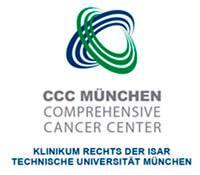An esophageal ulcer is a serious defect in the mucous membrane of the organ. This condition mainly occurs as a complication of reflux esophagitis. The ulcer itself can usually be treated with conservative methods only. If bleeding develops, it will be stopped with an endoscopic procedure. Some patients undergo anti-reflux surgery to eliminate the cause of the ulcers.
Content
- Causes of esophageal ulcer
- Diagnostics
- Conservative treatment
- Endoscopic treatment
- Surgical treatment
Esophageal ulcers are usually treated with conservative methods, but endoscopic procedures can also be rarely required. Since severe GERD is the most common cause of esophageal ulcers, anti-reflux surgery may be necessary for their treatment. In Germany, such interventions are performed using minimally invasive techniques.
You can undergo your treatment in the following hospitals: University Hospital Duesseldorf, University Hospital of Ludwig Maximilian University of Munich, or University Hospital Ulm.
Don't hesitate to contact the Booking Health specialists, and we will take care of the organization of your trip. After studying the results of your previously performed examinations, our specialists will recommend a clinic, a doctor, and a treatment method. Our employees will book your treatment appointment at a preferred date. They will also help you apply for a visa, get to the clinic, and take care of your accommodation and interpreting services. In addition, your personal medical coordinator will always be in touch with you.
Causes of esophageal ulcer
An ulcer usually develops due to the regular reflux of hydrochloric acid into the esophagus from the stomach in patients with gastroesophageal reflux disease (GERD). Less often, defects in the esophageal mucosa can be associated with other causes. These may be as follows:
- taking medications (NSAIDs, bisphosphonates, or antibiotics);
- burns;
- foreign bodies;
- infections that develop in patients with immunodeficiencies (cytomegalovirus, herpes, or fungi of the genus Candida);
- esophageal cancer;
- indomitable vomiting;
- radiation therapy.
Diagnostics
Patients usually seek medical attention with the following complaints: heartburn, painful swallowing, difficulty swallowing, feeling of a lump in the throat, chest pain, regurgitation (reflux of food into the mouth), vomiting, and weight loss. With bleeding, the pain intensifies, and there is often coffee ground vomitus due to mixing blood and hydrochloric acid.
Doctors can confirm a diagnosis with the help of an endoscopic examination (esophagogastroduodenoscopy). The appearance of ulcers can suggest the cause of their occurrence.
Here are some additional diagnostic procedures aimed at clarifying the origin of esophageal ulcers:
- 24-hour pH-metry;
- barium X-ray;
- infection testing;
- biopsy (for suspected esophageal cancer and precancerous esophageal processes).
Conservative treatment
Elimination of the cause of the esophageal ulcer is critical to successful therapy. Doctors should also provide conditions for ulcer healing and prevent its complications, primarily bleeding.
There are several treatments available depending on the cause of the esophageal ulcer.
GERD. This disease can be treated with drugs that block the production of hydrochloric acid in the stomach. Proton pump inhibitors are usually prescribed. Patients take them constantly for years, and after stopping taking them, GERD may recur. Antireflux surgery can cure the disease forever.
Taking medications. The medicines will be canceled if the ulcer has developed due to drugs. This measure is usually enough to heal the defect.
Infectious esophagitis. If caused by bacteria, this will be treated with antibiotics. With a fungal etiology of the disease, doctors prescribe antimycotics (antifungal agents). With herpes or cytomegalovirus infection, acyclic nucleosides can be prescribed. The development of ulcers can sometimes be associated with tuberculosis, a bacterial infection that is treated for a very long time: 6-9 months, usually with a combination of four drugs.
HIV. This disease weakens a patient's immunity and creates prerequisites for developing infectious esophagitis. Patients with HIV at the stage of immunodeficiency are given antiretroviral therapy to reduce a viral load. This type of therapy contributes to a gradual restoration of immunity.
Doctors can use drugs that reduce the impact of factors of aggression on the ulcer and create good conditions for its healing. Regardless of the cause of the ulcer, conservative therapy may include the following medications:
- proton pump inhibitors or H2 blockers to reduce the production of hydrochloric acid;
- regeneration stimulating drugs;
- gastrointestinal motility regulating agents;
- topical astringents;
- gastroprotective agents.
Endoscopic treatment
Some patients require endoscopic procedures, which are performed through the mouth. Doctors insert a thin tube with a video camera and instruments into the esophagus and perform the necessary manipulations. For example, healthcare professionals can:
- remove a foreign body;
- "cauterize" a bleeding blood vessel;
- place a nasogastric tube to feed the patient during the ulcer healing.
Surgical treatment
In two out of three patients, GERD is the cause of esophageal ulcers. This disease can be controlled for years with drugs by suppressing the production of hydrochloric acid. Although this treatment successfully prevents new ulcers from forming, patients may experience some complications.
A surgical technique helps to get rid of GERD once and for all. The standard treatment is fundoplication. In Germany, this surgical procedure is performed using laparoscopic techniques. The doctor wraps part of the stomach around the esophagus. In doing so, surgeons strengthen the sphincter so that it does not let hydrochloric acid go up.
Doctors in Germany also use minimally invasive treatment methods, with minimal risk of complications and a short rehabilitation period. For example, this is the installation of the LINX Reflux Management System, that is, rings of magnetic balls around the esophageal sphincter, and transoral incisionless fundoplication (TIF), which is performed without abdominal incisions, endoscopically, through the oral cavity.
You are welcome to use the Booking Health service to undergo your diagnostics and treatment of esophageal ulcers in Germany. With our website, you can find out the cost of treatment in different medical centers, compare prices and make your treatment appointment at the best price. Please leave your request on our website if you want to undergo your treatment in one of the German hospitals. The Booking Health specialists will help you to choose the most suitable clinics in Germany and organize your trip.
Authors:
This article was edited by medical experts, board-certified doctors Dr. Nadezhda Ivanisova, and Dr. Bohdan Mykhalniuk. For the treatment of the conditions referred to in the article, you must consult a doctor; the information in the article is not intended for self-medication!
Our editorial policy, which details our commitment to accuracy and transparency, is available here. Click this link to review our policies.
Sources:
National Library of Medicine
MedicineNet
UpToDate













